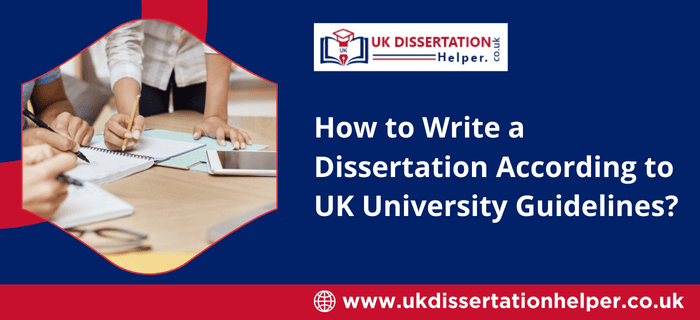A dissertation uncovers the facts and solutions by conducting new research in the chosen field. But, structuring the research according to UK university standards is a challenge for students. It is a complex process, not easy for every student to understand. That is why, a well-organised dissertation requires a master plan, research skills, and knowledge of UK university guidelines.
In this blog I will share my personal experience with you, how I dealt with this situation, and successfully overcame the challenging tasks, how I utilise the online sources in my research and format my dissertation according to UK university guidelines.
Understanding UK Dissertation Guidelines
UK universities have clearly stated the guidelines for dissertation writing, students can find it in course handbooks or online portals. Check out what the guideline includes:
- Word Count Requirements – A dissertation word count can not be fixed, because what you are researching and how deep it will go to find the appropriate results is not pre-defined, and it also depends on the student’s degree level and discipline. Most dissertations range between 8,000 to 15,000 words.
- Structure and Format – The important sections in a dissertation are as usual the title page, abstract, introduction, literature review, methodology, findings, discussion, conclusion, and reference formatting.
- Referencing Style – British universities generally specify citation styles like Harvard, APA, or MLA, with strict rules for formatting. Students are required to follow the guidelines and structure in their dissertation accordingly.
- Submission Requirements – Dissertation submission requirements include deadlines, plagiarism checks, and formatting standards (e.g., font size, line spacing) are critical.
Read the university handbook or guidelines at the beginning of dissertation writing to ensure your work aligns with academic expectations.
Step 1: Right Dissertation Topic Selection
Common Question: What is the key to identifying the best dissertation topic?
Choosing a topic is one of the first steps that determine what course your research takes.
Practical Guidelines on Choosing a Suitable Topics
- Select a subject relevant to your interests and academic objectives.
- Consider if the topic fits into the word count and time frame.
- Access to sources and data for research.
Challenge Faced By Students: It is always difficult to narrow a broad area into a precise research question.
Solution: Have general reading, notice gaps in existing research, and share ideas with your supervisor.
Step 2: Writing A Good Proposal
Common Question: Why is the dissertation proposal so important?
The dissertation proposal is written to explain the future research process research objective, methodologies, and expected results. The more clearly defined and concise the proposal is, the higher it is likely to be approved by your supervisor.
Challenges Faced By Students:
- Lack of clear research objectives.
- Insufficient justification for the relevance of their research.
Solutions:
- Organize logically: introduction, objectives, methodology, contributions expected, and references.
- Justify your research as contributing to a current debate or filling a gap in a specific area.
- As above explained, a proposal is the beginning of your dissertation writing journey, make it perfect means you make a good start. Do it by yourself or choose a dissertation proposal help in UK for a good beginning.
Step 3: Literature Review
Common Question: How should I structure my literature review?
Literature Review, A critical analysis of the literature lends your dissertation a theoretical underpinning.
Challenges:
- Finding relevant sources among the vast information.
- Not a shallow literature review.
Solutions:
- Utilize well-reputed academic databases like JSTOR or Google Scholar to find sources.
- Organize your review thematically or methodologically for coherence.
- Critically discuss the literature about gaps and debates.
- A literature review is an important part of a dissertation, if you face difficulties with it, choose to take literature review help UK for an effective start.
Step 4: Choosing the Methodology
Common Question: What research methods suit my needs?
The methodology explains how you would conduct your research, data collection, and analysis.
Challenges:
- Selecting from Qualitative, quantitative, or mixed methods?
- Justifying your methodological choices.
Solutions:
- Match your methodology to your research question.
- Provide information on sampling, data collection tools, and techniques for data analysis.
- State any limitations you see in your chosen approach.
Step 5: Data Collection and Analysis
Common Question: What if I have some unexpected data problems?
Challenges:
- How to collect enough reliable data
- Access restrictions or technical difficulties
Solutions
- Plan data collection with great care and expect the unanticipated problems.
- Use SPSS or NVivo tools for data analysis if necessary.
- Present your findings clearly, using charts or tables where applicable.
- Approach famous dissertation data collection services for good results.
Step 6: Writing the Dissertation
Common Question: How do I maintain academic tone and coherence?
Challenges:
- Analysis vs. description.
- Extensive referencing without plagiarism.
Adhere to the outlined structure:
- Abstract: Concise summary of what you are doing.
- Introduction: Clearly indicate your research question and objectives.
- Findings and Discussion: Compare your results with previous literature.
- Conclusion: Place importance on the results and recommend areas of further research.
- As we know, British university guidelines are a little bit complex, If you feel overwhelmed with dissertation writing, choose to write my dissertation services online.
Write in a formal, objective style, avoiding colloquialisms.
Step 7: Editing and Proofreading
What is the best way I can make sure my dissertation is free of errors?
Challenge:
- Spotting errors in lengthy documents.
- Maintaining consistency in formatting and referencing.
Solutions:
- Spend quality time doing multiple iterations of proofreading
- Use tools such as Grammarly for grammar checks but leave manual editing for subtlety.
- Crosscheck references and that they are up to the one specified in the prescribed style guide.
- Leveraging online dissertation proofreading services is also a commendable option for stuck situations.
Step 8: Supervisor Feedback
Common Question: How do I react to constructive criticism?
Challenge:
You took the feedback/move to criticize you personally.
Solution:
- Read the feedback as a chance to improve your work.
- Seek clarification when appropriate and implement suggestions accordingly.
Common Mistakes to Avoid
- Waiting till the last minute: Start ahead of time and maintain a deadline.
- Missing University Requirements: Review them regularly.
- Overuse of Sources: Quality trumps quantity.
- Overshadowing Your Supervisor Input: Maintain good communication to avoid deviating from expectations.
Conclusion
It is difficult to follow the UK university guidelines but with good planning, discipline, organisation, and attention to detail, it is achievable. Break the entire dissertation into small tasks, complete everyday tasks according to schedule to beat the challenges, and produce a well-researched, structured, and academically rigorous dissertation.
Remember, the dissertation journey is as much about personal growth as it is about academic achievement. Enjoy this journey by approaching it with curiosity, persistence, and a willingness to learn, and with this, you’ll not only complete the dissertation but stand on your hypothesis to complete the research gap.

